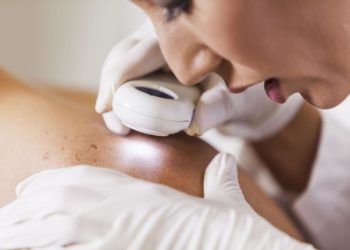As a seasoned doc who’s seen more than my fair share of aspiring medical minds, I can tell you that extracurricular activities for medical students aren’t just resume fluff — they’re the secret sauce that can turn a good doctor into a great one.
Why Extracurricular Activities Matter for Aspiring Doctors
First off, let’s get real — medicine isn’t just about memorising textbooks and acing the exam for aspiring doctors. It’s about people, problem-solving, and thinking on your feet. Extracurricular activities for medicine give you a taste of that real-world flavour before you’re knee-deep in residency.
Take those medicine summer school programs or an aspiring doctors programme, for instance. They’re like dipping your toes in the ocean before diving in. You get hands-on experience, sure, but more importantly, you start developing that “doctor’s intuition.” It’s that gut feeling that tells you when something’s off, even if all the tests say otherwise.
What extracurricular activities should I do for medicine?
But it’s not all about clinical skills. Volunteering at a local clinic or joining a global health initiative? That’s where you learn empathy, my healthcare volunteer. You see healthcare through different lenses — from the overworked nurse to the worried parent. It’s humbling, eye-opening, and absolutely crucial.
Research opportunities? They’re gold. They teach you to question, to be curious, to never stop learning. Medicine is always evolving, and you’ve got to evolve with it.
And let’s not forget about leadership roles. Whether you’re heading a student org or coordinating a health fair, you’re building skills that’ll serve you well when you’re leading a medical team or managing a practice.
And what’s more important — these experiences help you figure out if medicine is really your jam. It’s better to realise you’re more into research than patient care when you’re still in undergrad and going through work experience for aspiring doctors, rather than halfway through med school.
Plus, let’s be honest — med school admissions are tough. These extracurriculars make you stand out. They show you’re not just book-smart, but you’ve got initiative, passion, and a real understanding of what you’re getting into.
So yeah, extracurricular activities for medicine (UK) matter. Like a lot. They’re where you start becoming a doctor long before anyone calls you “Dr.”
Being a great doctor is about more than just knowing your stuff. It’s about being a well-rounded human who can connect with patients, work in a team, and keep cool under pressure. And trust me, you don’t learn that stuff from the best books for aspiring doctors.
Top Extracurricular Activities for Aspiring Doctors
These experiences are your chance to try on the doctor’s coat, figuratively and sometimes literally. They’re where you’ll start to develop that sixth sense that all good doctors have — the ability to see beyond the symptoms to the person.
Medicine Summer School Programs
Summer med school programs are like a taster menu of the medical world. They usually mix up lectures with hands-on stuff — think part classroom, part science lab, part hospital corridor. You might find yourself learning about the cardiovascular system in the morning and practising sutures on a banana in the afternoon. It’s a bit of everything, really.
In the UK, you’ve got some solid options. Check out programs like:
- Imperial College London’s Medical Summer School
- Oxford Royale Academy’s Introduction to Medicine
- University College London’s Summer School in Medicine
These are top-notch and will give you a real feel for med school life. But don’t just go for the big names — smaller unis often have great programs too, and sometimes with more personal attention.
Shadowing Physicians
Now, about shadowing meaning in medical — that’s where the rubber really meets the road. Shadowing a physician is like being a fly on the wall of the medical world. You follow a doc around, observing everything from patient consultations to procedures. It’s unfiltered, real-world medicine.
To get all the benefits of shadowing in healthcare, start by reaching out to local hospitals, clinics, or even your family doctor. Be persistent but polite — docs are busy people, but many are happy to help aspiring medicos in being a medical shadow.
Understanding your ‘why’
Medicine isn’t just a job, it’s a calling. It’s what gets you out of bed at ungodly hours, keeps you going through endless night shifts, and helps you push through when things get tough (and trust me, they will).
Shadowing and summer programs help you figure out if you’re cut out for this life. You’ll see the highs — like when a treatment works or a patient recovers against the odds. But you’ll also see the lows — the long hours, the emotional toll, the times when despite your best efforts, things don’t work out.
It’s not all glamorous like on TV. There’s paperwork, difficult patients, and days when you’ll question why you ever thought this was a good idea. But then you’ll have moments — helping a scared kid through a procedure, or seeing the relief on a family’s face when you deliver good news — and you’ll remember why you’re doing this.
Remember, it’s okay if you find out it’s not for you. Better to know now than after years of med school. And if it confirms your passion? Well, you’ll have some great stories for your med school interviews.
Volunteering in Healthcare Settings
Volunteering is like a crash course in the emotional side of healthcare. It’s where you learn that medicine isn’t just about treating diseases — it’s about caring for people.
Picture this: You’re volunteering at a hospice. It’s been a long day, you’re tired, and then you meet a patient who just wants someone to talk to. That’s when you’ll really know if you’ve got what it takes. Can you still summon a genuine smile? Can you listen with empathy when you’re running on empty? That’s the true test.
Volunteering also gives you a front-row seat to the healthcare system. You might be restocking supplies, helping patients eat, or just keeping them company. It’s not glamorous, but it’s real. You’ll see the everyday heroes — the nurses who remember every patient’s name, the orderlies who crack jokes to lighten the mood. That’s the kind of doctor you want to be, right?
Research Projects
If you love Chemistry, you’re in for a treat! Medical research is where the magic happens. It’s like being a detective, but instead of solving crimes, you’re unravelling the mysteries of the human body.
Think about it: You could be part of a team developing new drugs, studying how chemicals interact with the body, or even exploring how environmental factors affect our health. It’s like being a wizard, but instead of a wand, you’ve got a pipette and a mass spectrometer.
Research projects teach you to think critically, to question everything, and to be meticulous. These are all crucial skills for a doctor. Plus, it’s a great way to get published and make a name for yourself even before med school.
Here’s a cool idea: Look for research opportunities that combine chemistry and medicine. Maybe something in pharmacology or biochemistry. You could be working on the next breakthrough drug or uncovering how certain chemicals affect specific diseases.
Whether you’re volunteering or researching, stay curious. Ask questions. Observe. Learn. That’s how you build the foundation
Medicine isn’t just about treating patients — it’s also about advancing the field. Every great doctor stands on the shoulders of researchers who came before them.
So, whether you’re holding a patient’s hand or pipetting samples in a lab, you’re contributing to the grand tapestry of healthcare. It’s all about finding your niche, your passion within this vast field.
And hey, who knows? Maybe one day you’ll be the doc who not only treats patients but also discovers a new treatment. Now that’s what I call a dynamic duo!
Participation in Medical Clubs and Societies
Medical clubs and societies are absolutely golden for your med school application. They show you’re not just interested in medicine, but you’re actively engaging with it. It’s like telling med schools, “Hey, I’m not just dipping my toes in — I’m cannonballing into the deep end!”
In the UK, some top-notch medical societies include:
- The Royal Society of Medicine (RSM) — it’s like the Hogwarts of medical societies
- British Medical Association (BMA) — they’ve got a great student wing
- Medic Portal — not exactly a society, but they run great events and programs
Community Service and Outreach
Community service and outreach that’s where you really get to flex your empathy muscles. It’s about taking healthcare beyond the hospital walls. Think health education in schools, running blood pressure checks at community events, or organising health awareness campaigns. It’s grassroots stuff that really makes a difference.
The benefits here? You develop communication skills (try explaining diabetes to a group of teenagers and you’ll see what I mean). You learn about health inequalities firsthand. And you get to see the impact of your work immediately. It’s incredibly rewarding.
Attending Medical Conferences and Workshops
These events are usually organised by medical associations, universities, or sometimes pharmaceutical companies.
- Student BMJ (British Medical Journal) website
- Your university’s medical school notices
- Social media accounts of medical societies
They’re great for networking, learning about cutting-edge research, and sometimes even presenting your own work!
Pro tip for you: Don’t just attend these events — get involved in organizing them. It shows leadership and initiative, which med schools eat up like candy.
All these activities aren’t just about padding your CV. They’re about developing you as a person and a future doctor. They help you understand different aspects of healthcare and find what really lights your fire.
It’s like you’re assembling your own medical superhero toolkit. Each experience is a new gadget in your utility belt. The more diverse your experiences, the better equipped you’ll be to tackle whatever challenges come your way in med school and beyond.
Don’t forget to have fun along the way! Medicine is serious business, but that doesn’t mean you can’t enjoy the journey. Find the activities that genuinely excite you – your passion will shine through in your applications and interviews.
How to Choose the Right Extracurricular Activities
Pros and Cons for Aspiring Doctors
Balancing act
Juggling extracurriculars and academics is like trying to pat your head and rub your belly at the same time — tricky, but not impossible. The key? Time management. Treat it like triage in the ER — prioritise what’s urgent and important. Remember, your grades are your ticket to the med school dance. Don’t let them slip while you’re saving the world one volunteer shift at a time.
The money talk
Some of these activities can hit your wallet harder than a textbook to the foot. Summer programs, especially, can be pricey. But don’t let that deter you! Look for scholarships, grants, or even crowdfunding. Some unis offer funding for students doing volunteer work. It’s like hunting for rare diagnoses — you gotta get creative.
International volunteers
Many summer programs welcome international students with open arms — talk medical volunteer work abroad. It’s like adding an exotic spice to their medical melting pot. Just keep in mind visa requirements and extra costs. But hey, it’s a chance to see a different healthcare system and maybe pick up some medical lingo in another language. “Où est la salle d’opération?” could come in handy someday!
Choosing the right activities
This is where you need to channel your inner Sherlock. Investigate what truly excites you. Love problem-solving? Research might be your jam. Enjoy working with people? Direct patient care activities could be your calling. It’s like choosing your specialty — you gotta try different things to know what fits.
Finding opportunities
Network like your future career depends on it (because it kinda does). Talk to older students, professors, local doctors. Join online medical student forums. Heck, even LinkedIn can be a goldmine for opportunities. Be proactive — sometimes the best opportunities are the ones you create yourself.
Balancing commitments
Here’s where you learn the art of saying “no” — a crucial skill for doctors. You can’t do everything, and that’s okay. Choose quality over quantity. It’s better to be deeply involved in a few meaningful activities than to spread yourself thinner than hospital coffee.
Words of wisdom—Doctor’s orders
- Stay curious. Every experience is a learning opportunity.
- Be authentic. Do things because you’re genuinely interested, not just to tick boxes.
- Reflect on your experiences. What did you learn? How did it change you?
- Remember why you started. On tough days, reconnect with your passion for medicine.
- Take care of yourself. You can’t pour from an empty cup.
Lastly, remember that becoming a doctor is a marathon, not a sprint. Pace yourself. Enjoy the journey. These experiences are shaping not just your CV, but the kind of doctor you’ll become.
So go on, get out there and get your hands dirty (metaphorically, of course—always practise good hygiene!). Whether it’s pipetting in a lab or observing in the ER, every experience is a step towards becoming the doc you want to be.




![7 Best POS Software in the UK [2026 Edition]](https://todaynews.co.uk/wp-content/uploads/2026/02/7-Best-POS-Software-in-the-UK-2026-Edition-360x180.png)








































































